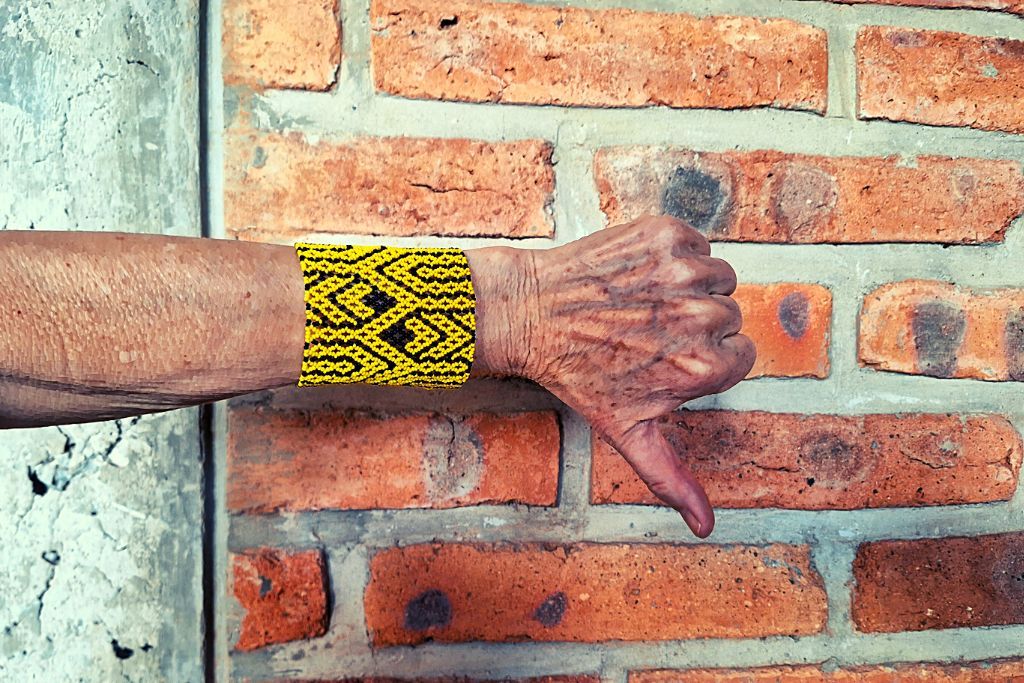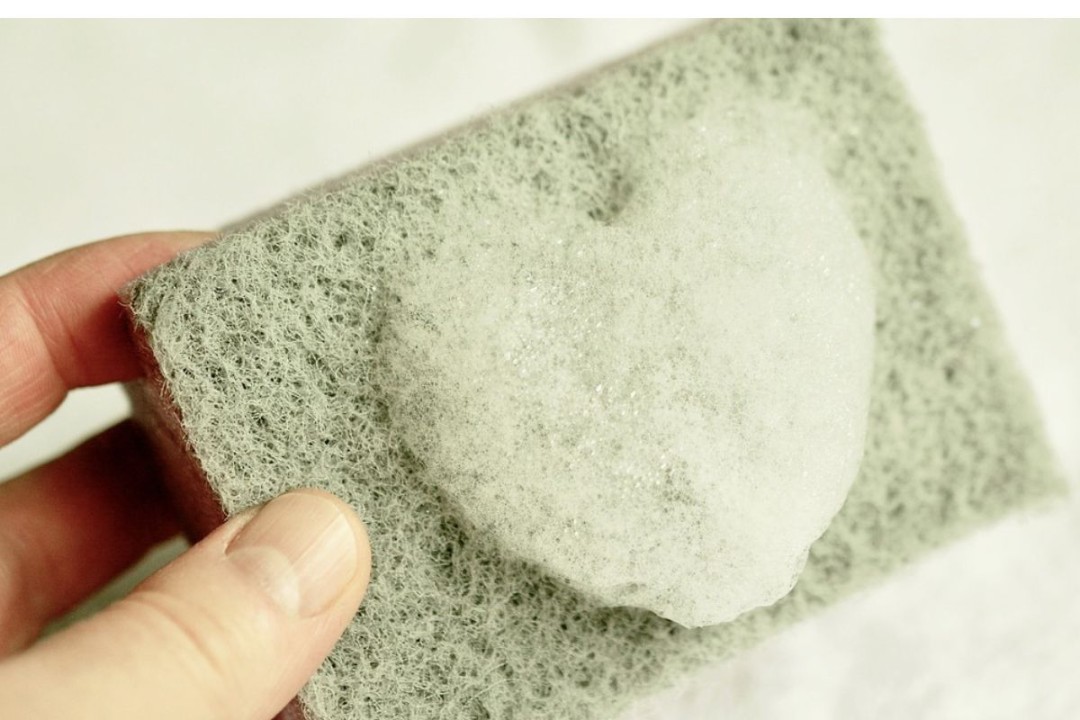July - Saying No
July 8th, 2023 Guest Posts 4 comments

Saying No – by @suek
=======
I never thought of saying no as an act of self care, but I realise now that knowing how and when to say no is a huge contributor to my happiness and health.
I used to be terrible at it. I think a lot of us are. As kids we learn that it’s dangerous to say no to the parents, the teachers, the other kids. We test the waters of saying no when we are small and our instincts are raw and pure. It’s often one of the first words we learn: NO. Such a simple word! But man, do we get kickback from the world around us when we say it! The big people bellowed at us “Do What You’re Told!” or our peer group shunned us, locked us out of the tribe. We got ostracised, terrified, or felt shame. It doesn’t surprise me that so many adults become exhausted ‘yes-people’.
It also doesn’t surprise me that so many of us ended up in relationships with substances that simply wouldn’t take no for an answer. How many years did we spend saying yes to the booze, the cigarettes, the drugs, the gambling… when deep down, we really wanted to say no?
How was it, in the very early days of sobriety, saying no, over and over again, to the pull, the craving, to “just have one”. It was horrible. Saying no is a very charged act. It’s an act of assertiveness, and it can feel really risky. Why?
What are the (usually subconscious) reasons we are reluctant to say no?
Let’s look at some real life examples:
- Your friend invites you to a party, so they don’t have to go alone.
- Your coworker asks you to stay late and help them with a deadline (yet again).
- Your boss wants you to work over the weekend.
- Someone wants you to join their non-profit committee.
- Your spouse wants you to go to a movie you have no interest in.
- Your neighbour friend asked you to watch their kids. Again.
Imagine you have no interest in any of these things. If you could, you would run a mile. But instead you go along with the request. Why? Reasons may differ, but generally they are something like:
- She would be hurt and crushed if I didn’t go with her.
- I won’t be valued at work if I don’t accept overtime.
- I’ll lose my friends if I don’t hang out with them all the time.
- The committee will fail without my input.
- My partner will be annoyed at me.
- Nobody will love me or need me and I’ll be irrelevant and lonely.
All these things are possible outcomes, and some of them feel very threatening. But maybe they are just “projections” of your own fears onto other people.
When I first examined my reasons for always saying yes, I came to the rather embarrassing conclusion that saying yes to everything was an expression of my own insecurity — that I had so little sense of self worth, I was reliant on the approval of others, and that meant Never Letting Anyone Down. That meant Saying YES to everything, even things that threatened my mental health, and even things that put me in physical danger. I thought so little of myself, I was willing to put everyone else’s needs and wants ahead of my own.
This is a very difficult habit to break. It’s as hard as giving up drinking, in my opinion. And we all know how hard that is.
Why bother saying no?
In my experience, being a chronic yes person meant being deeply disconnected from myself, my needs, my values, my meaning and purpose. Because I only had room in my life for other people’s needs, values, meaning and purpose. When yes is our only answer, we get cluttered up with the lives of others, and we lose all sense of our own priorities.
Also, we become open to people using us, relying too heavily on us, disrespecting us. In many ways, we invite this, by always being available and amenable. This can become a spiral of being too busy doing things for others, feeling exhausted and resentful about it, but unable to change it. Sound familiar?
We bother to say no, so we can make space and time in our lives for ourselves. And ironically, we can then have more time and space for others, just in a more authentic and mutually beneficial way.
The switch from yes to no
I had my own business for many years. Early on, I said yes to every job that came my way, even jobs from well-known shysters. I said yes to every request any client made, no matter how unreasonable. The business suffered as a result.
We hired a corporate coach, and he called me out on this willingness to jeopardise my bottom line, my staff’s wellbeing, and my own aspirations. It was blatantly obvious, but I didn’t know any other way. When I even imagined saying no to someone, expressing even a tiny amount of assertiveness, my whole body went into flight or freeze mode. My heart raced, my voice went croaky, my fear responses went into overdrive. Honestly, it was like I was on the brink of extermination.
Tim, our coach, suggested we do some roleplay. I really didn’t want to do it. I hated the whole idea of pretending. But I said OK (because I couldn’t say no!) It took a long time, but practicing saying no thank you, in a safe situation, where the whole purpose was simply to practice, was what got me past my automatic YES response.
It went a bit like this: Tim asked me on Friday afternoon to design a logo for his new business because he needed a business card for a meeting on Monday. I so wanted to say yes, because my mind was telling me: I was needed, it might make a bit of extra money, we could get more work in the future… but mostly I was feeling needed. Someone was going to trust me and rely on me. Woot!
But this was therapy, and I had to say no. Even in pretend circumstances, it was excruciating.
“I’m really sorry Tim, I’d love to help you, and you’re a good friend, but I don’t think I can get staff at short notice. I’m really really sorry… I would help you if I could.”
“Stop!” Tim would say. “Let’s try that again. No explanations and no apologies.”
Really? Surely I have to apologise profusely and explain in detail why I’m not able to give this person what they want.
“Just say NO,” laughed Tim. “It’s just one word, two letters. It’s very simple.”
“No?”
“It’s not a question! It’s a statement.”
“Nooo.” I croaked.
“How about a bit louder? With a bit more oomph.”
It took a while, but eventually Tim had me saying no, confidently, to whatever request my gut told me to turn down. (And yes to the things I really did want to do.)
We developed standard phrases that were kind, firm, and a definite no.
- Thanks for thinking of us, but that isn’t enough time to do a good job.
- Thanks for the opportunity, but we are booked solid this week.
- I canˋt accommodate that request today. Maybe next time.
Eventually it spilled over into my non-work life:
- Thanks for the invitation, but not this time.
- Thanks for asking, but I won’t be able to help this time.
- I’m sorry, but I’m maxxed out for socializing at the moment. Another time.
- Not this time.
- No, but thanks for asking.
Did I lose any clients? No. In fact, we got better clients. I didn’t lose any friends either. Those fears were just faking it!
How do we get from yes to no?
Awareness
The very first step is becoming aware of when you are about to cave and say yes, when you would really rather say no. It can happen in a split second, so you need to be quick to catch it!
Attention
Take notice: someone asked me to do something. Was my split-second gut reaction oh no, not again? Or some kind of internal sigh-of-the-martyr? Did I feel interest and enthusiasm, or dread? Or did I feel blank? Before we reach for our standard response, YES… before we default to the idea that we don’t really have a choice… we can check in with ourselves and be honest about what we really want to say.
Intention
Set a self-care intention for your self. Something like: I intend to be clear about what I will say yes to, and what I will say no to. I intend to respond honestly, kindly and firmly, and not back down from my decision.
Practice
There is real power in practicing something you find difficult, so you get used to doing it, and your nervous system stops thinking you’re going to get destroyed every time you do it. Practicing teaches your body that it’s not in danger. It’s actually in control, and control feels GOOD!
Practice with a friend or coach, or just role play on your own. Saying something into the mirror is amazingly powerful, once you get over the weirdness of it all!
Living in the no
I’m not suggesting we say a blanket no to everything everyone asks of us. (Unless that’s the authentic you!) Does being an occasional no person make you a mean, uncooperative friend and colleague, or a useless employee? Hell NO. It makes you more powerful, more worthy of respect, more YOU.
It makes you someone who’s clear about their priorities and values, and acts accordingly. That’s authentic living. And it’s great self-care.
What is your favourite way to say no? Or what request would you rather say no to? Tell us in the comments.
XX
Continue reading
Sober sponges
"Some of us are massive energy sponges. We walk around unconsciously absorbing energy from other people, from weather, from the environment, from buildings or rooms in buildings. As adults we reach for booze to dial down the intensity. "
October 14, 2024 – 5 comments
Every day is a choice
Are you sitting on the struggle side of the bus, boozed and disconnected and stuck in a drinking rut? Or are you sitting on the sunny side of the aisle, gazing at a different world?
October 2, 2024 – 3 comments
Six Reasons to Stay Sober
Just in case I ever think I should start pouring wine down my throat again, here are six reasons why it's a great idea for me to stay sober.
October 24, 2024 – 17 comments


